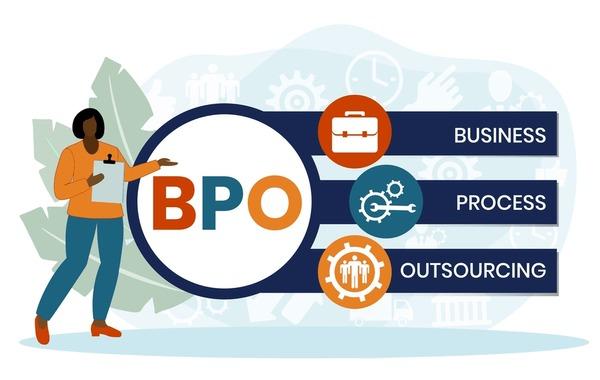
The business world has evolved significantly over the years, with companies seeking ways to improve efficiency, reduce costs, and enhance service quality. Among the various strategies businesses adopt, Business Process Outsourcing (BPO) and Business Process Management (BPM) are two popular choices. While both approaches aim to optimize business operations, they serve different purposes and offer unique advantages. Understanding the key differences between BPO and BPM is crucial for businesses looking to make the right decision for their operational needs.
What is Business Process Outsourcing (BPO)?
BPO refers to the practice of contracting specific business functions to third-party service providers. These functions can include customer support, payroll processing, IT services, and data entry. Many companies choose BPO to reduce operational costs, access specialized expertise, and focus on core business activities. Outsourcing allows businesses to delegate non-core functions to external providers who can perform these tasks more efficiently and at a lower cost. You can check out trusted providers to outsource staff who are expertise and have experience.
Why Should you Choose BPO?
One of the primary reasons businesses opt for BPO is cost reduction. By outsourcing processes to countries with lower labor costs, companies can save significant amounts on salaries and infrastructure. Additionally, outsourcing provides access to a global talent pool, ensuring businesses receive high-quality services from skilled professionals. Another advantage of BPO is scalability. Companies can easily expand or reduce outsourced services based on their changing needs, offering flexibility in managing business operations.
Why not Invest in BPO?
However, BPO comes with challenges. Communication barriers, cultural differences, and data security concerns can create hurdles in maintaining seamless operations. Businesses must carefully choose reliable outsourcing partners who adhere to strict data protection policies and maintain service quality standards. While BPO offers cost savings and efficiency, companies must weigh the potential risks before deciding to outsource.
What is Business Process Management (BPM)?
BPM, on the other hand, is a strategic approach to managing and improving business processes within an organization. Unlike BPO, which involves outsourcing tasks, BPM focuses on analyzing, designing, implementing, and continuously optimizing internal processes. It is a holistic method aimed at enhancing operational efficiency, reducing waste, and driving innovation.
Why Should you Choose BPM?
A well-implemented BPM strategy enables companies to streamline workflows, automate repetitive tasks, and ensure better collaboration across departments. By identifying inefficiencies in existing processes, businesses can make data-driven decisions to improve productivity. BPM also helps in maintaining regulatory compliance by ensuring standardized procedures across all operations.
Technology plays a crucial role in BPM. Businesses often use advanced software solutions and automation tools to monitor, analyze, and refine processes. These tools provide real-time insights into performance metrics, allowing businesses to make informed decisions. With BPM, organizations have greater control over their operations, leading to improved customer satisfaction and long-term success.
Reasons not to Invest in BPM?
Despite its advantages, BPM requires continuous monitoring and investment. Implementing BPM solutions can be time-consuming and costly, especially for small businesses with limited resources. Companies must allocate skilled professionals to oversee process improvements and ensure that changes align with business goals. While BPM enhances efficiency and operational control, it demands ongoing commitment and strategic planning.
Key Differences Between BPO and BPM
While both BPO and BPM aim to improve business processes, their approaches and objectives differ. BPO is an external solution where companies delegate specific tasks to third-party vendors. It focuses on cost reduction, efficiency, and access to specialized skills. BPM, on the other hand, is an internal approach that emphasizes process optimization, automation, and continuous improvement.
Another key difference is the level of control businesses retain. With BPO, companies rely on external providers, which can sometimes lead to challenges in maintaining quality and security. In contrast, BPM gives businesses complete control over their processes, ensuring they align with company objectives and compliance standards.
Scalability is another factor to consider. BPO offers quick scalability, allowing businesses to expand or reduce services as needed. BPM, while offering long-term scalability, requires time and resources to implement changes effectively. Companies must decide whether they need immediate cost savings and efficiency through BPO or long-term process optimization through BPM.
Choosing the Right Approach for Your Business
Deciding between BPO and BPM depends on various factors, including business size, industry, budget, and long-term objectives. Businesses that need immediate cost savings and access to specialized skills may find BPO to be a more suitable option. Startups and small businesses with limited resources often benefit from outsourcing as it allows them to focus on core functions without investing in infrastructure or additional workforce.
On the other hand, businesses looking for long-term efficiency and process optimization should consider BPM. Companies in highly regulated industries, such as finance and healthcare, often prefer BPM to ensure compliance and maintain internal control over operations. BPM is also ideal for businesses aiming to improve customer experience by streamlining workflows and reducing response times.
A hybrid approach is also an option. Many companies combine BPO and BPM to maximize benefits. They outsource non-core functions while implementing BPM strategies for internal processes. This approach allows businesses to achieve both cost savings and operational excellence.
The Future of BPO and BPM
Both BPO and BPM continue to evolve with technological advancements. Automation, artificial intelligence, and data analytics are transforming how businesses manage and outsource processes. BPO providers are increasingly adopting AI-powered solutions to enhance efficiency and accuracy. Meanwhile, BPM tools are becoming more sophisticated, offering real-time process insights and predictive analytics.
As businesses embrace digital transformation, the lines between BPO and BPM are blurring. Companies are integrating automation into their outsourcing strategies, leading to a more streamlined and technology-driven approach. The future will likely see more businesses adopting a combination of BPO and BPM to achieve optimal efficiency.
Conclusion
Choosing between BPO and BPM is not a one-size-fits-all decision. Businesses must evaluate their needs, industry requirements, and long-term goals before making a choice. BPO offers cost savings and flexibility, making it a great option for businesses looking to outsource non-core functions. BPM, on the other hand, ensures process optimization and operational control, making it ideal for businesses seeking long-term efficiency.
Write and Win: Participate in Creative writing Contest & International Essay Contest and win fabulous prizes.


